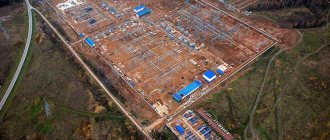Home › Questions and Answers ›
2020 made its own adjustments, rules and benefits. And some of them remained in 2021, so before we talk about the innovations of 2021, let's look at what remains relevant from last year, and since I already mentioned benefits earlier, let's start with them.
In 2021, one of the government support instruments was a preferential mortgage rate of 6.5% per annum for buyers of apartments in new buildings, and this program was extended until July 1, 2021. It is not yet known whether it will be extended again, but let’s remember the main conditions for obtaining a preferential mortgage:
- Have Russian citizenship
- The mortgage agreement must be concluded before July 1, 2021.
- Only apartments in new buildings are suitable
- The house can be either at the “pit” stage or already for rent
- The maximum amount varies from 6 million to 12 million rubles depending on the region.
- The rate is 6.5% per annum for the entire loan term.
- The down payment is at least 15% of the cost of housing.
- It is possible to use maternity capital or other types of government support.
It is important that the mortgage agreement must be concluded before July 1, 2021; this program applies to both ready-made apartments and apartments in the “pit” stage.
What innovations have appeared in 2021?
The abolition of shared construction has been discussed for a long time, but this would be too risky a step. Therefore, in 2021, a decision was announced to make a smooth transition to a new model of participation in construction - project financing. That is, now the bank will act as a guarantor of the success of construction. Is it good or bad?
It is difficult to answer this question unambiguously; of course, this scheme looks the most transparent, if only because the money invested by investors “will not go anywhere”, but will be transferred to escrow accounts in banks; we will tell you what these accounts are a little later. Among other things, in the event of the developer’s bankruptcy, investors will have their deposits returned, because now the developer is obliged to build with finances “out of his own pocket,” which will certainly lead to a “cleansing” of the development market.
But now let’s look at the same scheme through the eyes of a shareholder, let’s say you purchased an apartment at the “pit” stage, investors invest money in the developer, but in the middle of construction he closes the construction site and declares himself bankrupt. The bank reimburses all the money to investors, but what about shareholders? No, shareholders, unfortunately, cannot withdraw their money ahead of schedule; they will have the right to do so only when the company violates the terms of the project financing agreement.
But let’s not panic ahead of time, according to the adopted amendments to the law on shared participation in construction, in 2021 a company will be able to complete a project according to the old rules if:
- Buyers have made at least 10% of the investment, and the facility is at least 30% ready;
- The facility is 15% ready, but within the framework of the project, comprehensive infrastructure development is planned (for example, opening a kindergarten and school, opening a store or cafe)
- Readiness is from 6%, but the work is carried out by a large, reputable company.
What was and is
From the beginning of the 90s, when this whole epic began, until 2005, and to be more precise, until 04/01/2005, the legal status of organizations engaged in housing construction, as well as the taxation of their activities, were not regulated in any way.
And organizations became as sophisticated as they could. A wide variety of agreements were concluded with persons who wished to purchase an apartment in a new building, the meaning of which was not completely clear to the lawyers (or who considered themselves such) who developed them. In use were: investment agreements, agreements on joint activities (or on joint construction), preliminary agreements for the purchase and sale of real estate, etc., etc., etc. And sometimes, when the developer did not have from the very beginning intentions to collect money from the suckers and flee to distant warm countries, the residents, some earlier and some later, moved into new apartments.
But much more often, those who wanted to purchase a new apartment entered into some kind of cleverly named agreement and paid a significant amount of money. After a while, he learned that he would not have an apartment and no money either. And there is no one to file a claim with. Either the company he paid to has already closed, or, judging by the agreement, it doesn’t owe anyone anything.
And to stop this legal chaos, on December 30, 2004, Federal Law No. 214-FZ “On participation in shared-equity construction of apartment buildings and other real estate and on amendments to certain legislative acts of the Russian Federation” was signed, which came into force on April 1, 2005.
This Federal Law attempted to establish at least some order in the field of housing construction.
First of all, they limited the circle of persons who have the right to build multi-apartment residential buildings and attract, even at the construction stage, money from citizens and organizations to finance it. Such organizations were ordered to be called “developers.”
Thus, in the very first edition (clause 1 of Article 2 of Law No. 2014-FZ), the developer of an apartment building could be a legal entity (of any organizational and legal form) or an individual entrepreneur who owned (or leased) a land plot and there was permission to build a multi-apartment residential building on this site.
This definition of a developer did not contradict (and does not contradict now, when the requirements for such a company have become significantly stricter, and individual entrepreneurs are expressly prohibited from engaging in such activities) the definition of a developer given in the Town Planning Code of the Russian Federation (hereinafter referred to as the GSK RF).
According to the Civil Code of the Russian Federation, a developer is a person who has rights (including the right to lease) to a land plot and ensures the construction of a real estate property on it (Clause 14, Article 1 of the Civil Code of the Russian Federation).
There is a general rule (the definition of a developer in the Civil Construction Code of the Russian Federation), and a special one (the definition of a developer in Law No. 214-FZ), which does not contradict the general one, but somewhat limits it in connection with a certain type of activity. So everything is in order here, and no claims have arisen and do not arise against the developers of Law No. 214-FZ, as well as against the interpretation of this definition.
And later, when the specified paragraph 1 of Art. 2 of Law No. 214-FZ began to change in the direction of ever greater requirements and restrictions for developers - first they prohibited individual entrepreneurs from engaging in such activities (since July 2006), and then completely left only large players on the market who already had positive experience in housing market - neither lawyers nor financiers have any confusion or ambiguous interpretations.
There are also no complaints about the wording of the definition of a shared construction object (clause 2 of Article 2 of Law No. 214-FZ), which means residential or non-residential premises included in an apartment building. In other words, this is a piece of real estate that is part of a larger and separate piece of real estate, that is, its share. This is where the term “shared construction” came from. Although some still interpret “shared construction” as “joint”. But it is not the developer and shareholders who are building using the public construction method. The construction of the house, including at the expense of the shareholders, is carried out by the developer, who most often hires professional organizations for this - from designers to subcontractors specializing in one or another type of construction work.
But this is given in Art. 4 of Law No. 214-FZ, the definition of an agreement for participation in shared construction (DUDS), which they stubbornly continue to call DDU (that is, an agreement for shared participation), began to be interpreted, including by officials of the financial department, in a very unique way.
So, under an agreement for participation in shared construction, the developer undertakes to build a multi-apartment residential building, that is, a separate property, within the period stipulated by the agreement. Moreover, this object can be erected by the developer either independently or with the involvement of other persons. After the house is erected, which must be confirmed by the issuance of a commissioning permit, he is obliged to transfer the shared construction object specified in the DUDS, that is, an apartment or non-residential premises, to the shareholder. The latter, in turn, assumes the responsibility for timely payment of the cost of the apartment stipulated in the contract and, after issuing permission to the developer to enter, accept this premises by signing the acceptance certificate.
Both at seminars and in discussions (sometimes turning into polemics) on accounting forums, no one has yet given me an answer to the question: - How, apart from some philological differences in wording, does an agreement for participation in shared construction differ from a construction contract?
My arguments.
Under a work contract (clause 1 of Article 702 of the Civil Code of the Russian Federation), the contractor undertakes to manufacture (create) the thing specified in the contract and, after completion of the work, transfer it to the customer.
So the developer, as a person who has undertaken the obligation to construct (manufacture) an apartment (or other premises) on the instructions of another person (participant in shared construction) and, after completion, transfer it to the latter, may well be recognized as a contractor.
That is, from the point of view of the Civil Code of the Russian Federation, a participant in shared construction can be recognized as a customer, and the developer of an apartment building can be considered a contractor, regardless of whether he will build this house (and this apartment) on his own or will involve co-contractors (subcontractors). The right to engage subcontractors (even without notifying the customer) is expressly provided for in Art. 706 of the Civil Code of the Russian Federation. More precisely, the developer should be recognized as a general contractor.
Moreover, the shareholder (like any other customer), after accepting the apartment, registers the emergence of ownership rights to it.
The fact that, in accordance with both Law No. 214-FZ and the above-mentioned paragraph 14 of Art. 1 of the Civil Code of the Russian Federation, the rights to a land plot, up to the transfer of apartments to shareholders, belong to the developer, and do not contradict the Civil Code of the Russian Federation. The only difference that I found: in the contract concluded, the initiative and the palm belong to the customer. He finds a general contractor under his own conditions.
In DUDS it's the other way around. The general contractor (developer) begins to construct the property (or prepare for its construction) and only after that begins to search for customers (shareholders). Yes, and the second difference. In the DUDS, there will be quite a lot of customers (shareholders) per general contractor (developer).
And the two most interesting answers that I was given to the question asked:
1. Yes to everyone!
2. The contractor’s goal is to make a profit, that is, commercial, while the developer’s main goal is to transfer apartments to shareholders, that is, social*.
*In the morning I spread the sandwich,
Immediately I thought - what about the people?
Shortly before the entry into force of Law No. 214-FZ (from 01/01/2005) in paragraph 3 of Art. 149 of the Tax Code of the Russian Federation was introduced sub-clause. 22, according to which the sale of residential buildings, apartments, and shares in them was exempt from VAT.
And if officials had then agreed that the transfer of an apartment under the DUDS is its sale, then the developer would have no problems with accounting and tax accounting, that at the stage of building a house, when transferring apartments, as well as non-residential premises, to shareholders both then and up to the present time.
At that time we proposed the following scheme.
The developer (in accounting and tax accounting - the general contractor) is building a residential building.
Sources of financing: - own funds, bank loans, funds of equity holders. The funds actually received by shareholders are reflected as advance payment. He collects all the costs of building a house on account 20 “Main production”, where he has the opportunity to determine the cost of each shared construction project, as well as those objects for which no contracts have been concluded. The developer, after completion of construction, will take ownership of such premises as finished products and will sell them under sales and purchase agreements.The transfer of apartments (residential premises) about DUDS is not subject to VAT, the transfer of non-residential premises is subject to VAT.
And further changes to Law No. 214-FZ, and there were many of them, and there will probably be more, did not and cannot affect the proposed scheme.
But for some reason the officials did not like this scheme, which was too simple and understandable to everyone: “There are no difficulties that need to be heroically overcome.”
Even before the entry into force of the said sub-clause. 22 clause 3 art. 149 of the Tax Code of the Russian Federation, the Federal Tax Service of Russia, having agreed its opinion with the Ministry of Finance, published a letter dated December 9, 2004 No. 03-1-08/2467/ [email protected]
It explicitly stated that the VAT exemption applies only to contracts for the sale and purchase of apartments or residential buildings, in which the transfer of existing ownership rights from the old owner to the new one is registered. to the construction of new apartments for which the new resident acquires ownership rights.
- Why?
- And that’s how we see it.
So, from 05/01/2005, when Law No. 214-FZ came into force, and developers became obliged to raise citizens’ money only under equity participation agreements, it turned out that the benefit granted by legislators, which, in the opinion of its authors, was supposed to reduce the prices of new apartments, through the efforts of high-ranking officials of financial departments, does not work.
And, based on the ancient postulate that the boss is always right, or you simply misunderstood his wise instructions, the Ministry of Finance of Russia (letter of the Ministry of Finance of Russia dated July 12, 2005 No. 03-04-01/82, brought to the attention of the tax authorities by letter of the Federal Tax Service of Russia dated 08/02/2005 No. MM-6-03/632) proposed a very clever accounting scheme.
The authors of this opus, having read Art. 5 of Law No. 214-FZ, which defined the price of a contract for participation in shared construction, came to a very interesting conclusion. More precisely, they said a new word in taxation!
First, let us recall that the developer, who received permission to build an apartment building before July 1, 2018, had the right, in the agreement concluded with the shareholder, to indicate the price of the apartment as the amount of money to reimburse the costs of its construction plus the cost of the developer’s services. This phrase was excluded from paragraph 1 of Art. 5 of Law No. 214-FZ Federal Law of July 29, 2017 No. 218-FZ for contracts concluded after July 1, 2018.
The wording is rather vague and purely theoretical, since it is quite difficult to determine at the stage of concluding a contract how much the direct participants in construction (from surveyors to subcontractors) will demand from the developer. Moreover, it is copied almost verbatim from paragraph 2 of Art. 709 of the Civil Code of the Russian Federation, according to which the price in the contract includes compensation for the contractor’s costs and the remuneration due to him.
So, in the above letter, absolutely stunning conclusions were made (why its authors did not interpret the taxation of an ordinary contractor in the same way is not entirely clear).
Developers were ordered to be divided into two categories:
The first are those organizations that have construction divisions on their staff and are directly involved in the construction of a house.
The second is the so-called “pure” developers, who are only engaged in finding shareholders, concluding a contractual agreement with them and receiving money from them. The house is being built by other specialized companies hired by this “pure” developer.
The first category of developers (performing any work on the construction of a house), thus, performs work under a contract, that is, they keep records according to the scheme we proposed above, except that the price of the contract includes VAT.
But the second category , it turns out, acts as something like an agent who has entered into an agreement with the equity holder according to the model of a commission agreement.
But the supervisory state (municipal) bodies and participants in shared construction do not see the difference between these two categories of developers, and cannot see it even in theory.
A plot of land for construction (regardless of whose employees will work there) is purchased or leased only by the developer. Only can obtain a building permit in his own name . In the same way, he then receives permission to enter. The agreement with the shareholder, as well as the acceptance deed, is then signed only by the developer’s representative.
Yes, in the project declaration (Article 19 of Law No. 214-FZ), which a future participant in shared construction has the right to review, all organizations participating in the construction of the house must be indicated. But the fact that the developer will be listed there, for example, as a general contractor, or, according to the law, is not allowed to do so (there are no necessary specialists on staff), neither for the terms of the contract, nor, by and large, for the cost of 1 sq. m. m. in the future apartment (that is, the contract price) will not affect, and cannot affect in any way.
But no. Like in that ancient army joke: Comrade soldiers, you will be loading luminium. And whoever doesn’t like aluminum will load cast iron.
So it was proposed to conduct accounting and taxation for these two categories as follows.
For the first (who build themselves). The amount of funds received by the developer from equity holders must be taken into account as an advance payment, regardless of whether the contract is concluded for an apartment or non-residential premises. VAT must be calculated from it (on the date of receipt). Further, upon completion of construction, the transfer of the apartment to the shareholder must be recognized as the implementation of construction and installation work for its construction, which is not exempt from value added tax.
For the second category (that is, “pure” developers) . The receipt of money from developers must be divided into two parts - received as compensation for construction costs (which are not subject to VAT), and for payment for the so-called “services” of the developer, which were subject to VAT.
It was in this letter that the concept of “developer services” was mentioned for the first time, the definition of which is still not contained in any legislative act of the Russian Federation.
But a letter signed by the Deputy Minister of Finance and agreed upon with the Deputy Head of the Federal Tax Service was enough to introduce a new term into the practice of accounting and taxation, without bothering with changes to legislative acts or regulations*.
*Emperor Nicholas I once wisely remarked: “The state is governed not by me, but by three hundred department heads.”
At the stage of building a house and receiving money from shareholders, again guided only by vague and often contradictory explanations of the Russian Ministry of Finance, most developers, by default, did not charge VAT at all. Or they did so, if local tax authorities required it, based on some standard, for example, advance payment, and not targeted financing (subclause 14, paragraph 21, article 270 of the Tax Code of the Russian Federation) recognized 5% (or 7%) of the amount received from the shareholder of funds. VAT was extracted from this amount.
At the stage of transferring the apartment to the shareholder, “the services of the developer”, by analogy with the income of the agent (commission agent), they recognized, and still recognize, the actual difference between the amount of costs (submitted by the general contractor directly or through the technical customer) for the construction of the house, including a specific apartment, and the amount of funds received from the shareholder. Until September 30, 2010, it included value added tax. After this date (from 01.10.2010, sub-clause 23.1 of clause 3 of Article 149 of the Tax Code of the Russian Federation came into force, according to which the services of the developer were exempted from VAT on the basis of the concluded DUDS (except for the services of the developer provided during the construction of industrial facilities).
However, this term is still not explained either in the Tax Code of the Russian Federation, or in other legislative acts, or in court decisions.
Funds received to pay for the costs of building a house, guided by sub. 14 clause 1 art. 251 of the Tax Code of the Russian Federation, it is proposed to consider it as targeted financing. Indeed, funds received from equity holders, whether considered prepayment or targeted financing, can in no case be recognized as income (revenue) either in accounting registers or for tax purposes. The contract has not yet been executed, the apartment has not been transferred to the shareholder. And it is possible that the shareholder will terminate the contract, and the developer will be obliged to return the funds previously received to him.
But from this, officials concluded* that the funds that the developer will spend on paying for the work and services of other organizations directly involved in the construction of the apartment (more precisely, the building in which this apartment is located) are not taken into account when calculating the developer’s profit.
*There are a lot of such letters, so we won’t give a link to them here.
Further, it is imperative to mention the letter of the Ministry of Finance of the Russian Federation dated May 18, 2006 No. 07-05-03/02.
It concerned the procedure for reflecting in the accounting registers the costs of constructing a property. It proposed to collect these costs on balance sheet account 08 “Investments in non-current assets”, regardless of the purpose for which this object was initially built.
To some extent we agree with this letter.
Let us assume that the developer initially intends, after completion of construction, to register the emergence of ownership rights for the object under construction and intends for its further operation or rental. That is, this property from the developer will eventually be recognized as an object of fixed assets. Reflecting construction costs on account 08 in this case is absolutely legal and does not raise any questions or complaints.
Let’s assume that already at the construction stage of the facility a decision was made to transfer part of the facility (not “for thanks,” of course, but for a certain amount of money) to another person. Until 2011, each developer called such an agreement as he pleased. In use were: investment agreements, joint activity agreements, joint construction agreements, etc., etc., etc.
But the Plenum of the Supreme Arbitration Court of the Russian Federation, in its resolution No. 54 dated July 11, 2011, rightly noted that in the overwhelming majority we are talking about concluding an agreement for the purchase and sale of real estate that will be built in the future.
And the developer, after completing the construction of the object, will receive permission to put the object into operation and register the emergence of ownership rights to it, transferring this right to it (most often, to part of it) to another person. And this person (co-investor, participant in joint construction, etc.) paid all or most of the money in advance.
Consequently, already at the stand stage it will be known that some part of the object is being built not for oneself (as an OS), but for another person. That is, we are dealing with the production of finished products, albeit real estate. In the accounting registers, the costs of producing finished products (current assets) are recorded on balance sheet account 20, and the products themselves awaiting sale are recorded on account 43. But usually such a decision - selling part of the building to another person - is made after construction has begun. And the developer’s accounting department absolutely correctly keeps records of all costs in account 08. There is no point in changing the cost accounting after this, especially since it is usually still unknown exactly which specific part of the constructed object will be sold. Therefore, it is absolutely logical for the developer to continue to record costs on account 08.
And after the construction is completed and the developer (already the seller) finally decides which part of the property he will transfer (or rather, sell) to the co-investor (that is, the seller), and the posting specified in the letter will be made:
Debit account 43 Credit account 08*.
*This entry, although not provided for in the Instructions for using the chart of accounts, and scratches the eye of a more or less qualified accountant, in the described situation has a right to exist.
In this part, we have no complaints against the actual authors of the letter.
But then complete confusion begins.
If a developer is building (or at least planning to build) an apartment building and concluding agreements for participation in shared construction, then he does not intend to retain a single square meter of space in this building. He will not have any fixed assets in this house. That is, we have a process for producing current assets, initially intended for transfer to other persons for a fee.
However, even in this case, the authors of this letter propose to keep records of these costs on balance sheet account 08 “ Investments in non-current assets ”.
- Why?
— A clear answer has not yet been received from anyone.
I just had suspicions that the actual authors of the letter took as a basis the old Soviet recommendations, according to which all residential buildings were owned either by city executive committees or industrial enterprises, as fixed assets for non-productive purposes. The costs of their construction were then accounted for in account 08.
Those times are long gone, but it turns out that the recommendations are being applied.
Moreover, at the beginning of the letter there is a reference to the Regulations on the accounting of long-term investments, approved by letter of the Ministry of Finance dated December 30, 1993 No. 160.
But I would like to immediately note that this Regulation (approved by letter , and not by order of the Russian Ministry of Finance, and not even submitted for registration to the Russian Ministry of Justice) cannot be recognized as a normative legal act. This is the first thing.
Secondly, this Regulation concerns the accounting of long-term investments, that is, non-current durable assets (over one year) not intended for sale (clause 1.2 of this Regulation).
Thus, using it as a guide to accounting for the costs of creating current assets is, at a minimum, not entirely correct.
But, nevertheless, guided by the above letters, the Federal Service for Financial Markets of Russia, by its order dated November 30, 2006 No. 06-137/pz-n, approved the Instruction on the procedure for calculating standards for assessing the financial sustainability of a developer’s activities, which obligated developers of multi-apartment residential buildings (who they will not be listed as fixed assets) to reflect the costs presented by direct participants in construction only on account 08.
Thus, the Federal Financial Markets Service of Russia, by its regulatory legal act, without having the authority to do so, obliged organizations to prepare financial statements according to their requirements. Moreover, these requirements (reflection of the costs of creating current assets as part of non-current assets) contradicted the Federal Law of November 21, 1996 No. 129-FZ “On Accounting”* in force at that time, as well as the current accounting provisions*.
*In the accounting of organizations, current costs of production and capital investments are taken into account separately (Clause 6, Article 8 of Law No. 129-FZ)
**Regulations on maintaining accounting and financial statements in the Russian Federation, approved by Order of the Ministry of Finance of Russia dated July 29, 1998 No. 34n
Accounting Regulations Accounting for Inventories" PBU 5/01, approved by Order of the Ministry of Finance of Russia dated 06/09/2001 No. 44n
Accounting Regulations “Accounting for Fixed Assets” PBU 6/01, approved by Order of the Ministry of Finance of Russia dated March 30, 2001 No. 26n.
Also, in 2021, with the introduction of further amendments to the Decree of the Government of the Russian Federation of December 26, 2011 No. 1137, which approved the forms and rules for filling out (maintaining) documents used in calculating value added tax, developers of multi-apartment residential buildings in terms of registration and filling invoices, sales book, purchase book, journal of received and issued invoices, equated to agent, commission agent, forwarder.
Although, we repeat once again, such an unambiguous conclusion cannot be drawn from any legislative act.
Thus, the existing system of cost accounting for the construction of multi-apartment residential buildings, built primarily on letters from high-ranking officials, mostly contradicts both current legislation and regulations. However, at the very least, until recently it worked.
And, relatively recently, competent lawyers for developers, taking advantage of the ambiguous wording of Law No. 214-FZ and sub.
23.1 clause 3 art. 149 of the Tax Code of the Russian Federation, turned them to their advantage. Let us remind you once again that developer services are exempt from VAT when transferring shared construction projects to shareholders, with the exception of industrial facilities.
These, as also mentioned in this subclause, include objects intended for use in the production of goods (performance of work, provision of services).
In modern apartment buildings, the first floors (also called basements) are most often non-residential. After completion of construction, they are given over to small shops, offices, beauty salons, etc.
However, the apartment building itself (as a building as a whole) is an object of non-industrial (residential) purpose, regardless of the presence or absence of non-residential premises in it. Thus, industrial facilities cannot be located in an apartment building. Consequently, when transferring such non-residential premises, the developer’s services are also not subject to value added tax. The Supreme Court of the Russian Federation also came to this conclusion (Determination No. 302-KG16-11410 dated September 21, 2016 in case No. A78-10467/2015, brought to the attention of the tax authorities by letter of the Federal Tax Service of Russia dated December 23, 2016 No. SA-4-7/ [email protected ] ).
Later, the Russian Ministry of Finance (letter dated April 24, 2019 No. 03-07-11/30014) also agreed with this.
Now we'll tell you everything!
Let's start with a simple one, an escrow account is a bank account in which certain amounts are stored until certain circumstances are met, in this case, construction and the start of renting out apartments to equity holders. The legal side of escrow accounts and escrow accounts in shared construction can be found in Article 860.7-860.10 of the Civil Code of the Russian Federation and Article 15.4 of Federal Law-214.
Since 2014, it became possible to conclude an escrow account agreement, but at that time it was only one of the types of bank accounts, but was used, for the most part, only in the public sector. corporations.
Then in 2021, they began to think about using escrow accounts as a guarantee of work completion. However, then this idea did not receive any large-scale response and was shelved for another couple of years.
And in 2021, the government finally announced the use of such accounts.
Earlier I mentioned that escrow accounts are not ideal for investors, but let’s figure it out anyway. The payment mechanism through escrow accounts ensures that you either have money left over or you get the apartment. Money for construction is blocked or, in banking parlance, deposited in accounts until the ownership of the first rented area/apartment is registered. Also, if any problems arise with the developer, the buyer will be able to return the amount he paid.
Developers are financed for the most part by banks, and escrow accounts are also opened in the same banks lending to the project. Therefore, the builder or developer can benefit from a good sale of apartments during the construction phase and reduce the interest on the loan.
Requirements for the developer according to 214-FZ
To sell apartments in housing under construction, the developer must obtain a special permit from the Ministry of Construction and Housing and Communal Services. The Ministry of Construction checks:
What is the legal form of the development company?
Permission is issued only to business companies: limited liability companies (LLC) or joint stock companies (JSC). The Ministry will refuse to apply to non-profit organizations or individual entrepreneurs.
Who holds leadership positions in the company
The managers of the developer and the chief accountant cannot be persons who:
- have an outstanding or unexpunged conviction for economic crimes or crimes against government,
- solely owned a company that went bankrupt less than five years ago,
- owned at least 5% of the shares of a company that went bankrupt less than three years ago,
- have been disqualified and have no right to engage in such activities.
Is there a project declaration
To confirm that there are no violations in the project, the developer must attach a special expert opinion to the declaration.
How much money does the developer have?
The company must have its own funds in an amount greater than 10% of the project cost of construction. Such funds include not only money in accounts, but also real estate, land plots or accounts receivable. Also, before obtaining permission, the developer must open an account with an authorized bank. He must deposit 10% of the project cost of construction into the account. If he doesn't have that kind of money, he can take out a loan. The loan amount must be more than 40% of the project cost. The Ministry of Construction will not issue a permit if the company:
- has not yet paid for previously taken credits, advances or borrowings,
- issues any securities other than shares,
- pledged her property to secure obligations,
- participates in bankruptcy proceedings,
- suspended activities by court decision,
- did not fulfill the contract or agreement after winning the procurement and ended up in the Register of Unfair Suppliers (RNP),
- failed to pay taxes, fees or other government payments on time.
What experience does the developer have?
The developer must participate in the construction of apartment buildings for at least three years. During this time, he must build at least 5,000 m2 of housing. The Ministry takes into account facilities built by related organizations, as well as projects in which the developer was the technical customer or general contractor.
Who owns the development land?
The developer must own the building site or lease or sublease it.
What are the pros and cons of escrow accounts?
- The buyer retains his funds in the event of bankruptcy or other problems of the developer, if all obligations under the contract are fulfilled.
- The parties entering into an escrow account agreement can choose the documents themselves that will serve as a guarantor of the transaction.
- Investments up to 10 million rubles are insured by the Deposit Insurance Agency.
- Escrow accounts are not subject to seizure (clause 4 of Article 860.8 of the Civil Code of the Russian Federation. Restrictions on the disposal of funds and the use of an escrow account).
- The shareholder opens an escrow account for free.
- The scheme for purchasing real estate through escrow accounts makes it possible to get rid of the asymmetry of the transaction, where on one side is the shareholder (or his authorized representative), and on the other is the developer. An individual does not have such competence to check the developer, but the bank can already examine his reliability.








